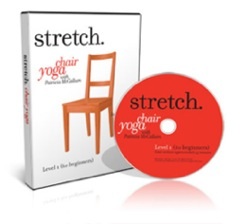Grants For Senior Citizens
Government Grants For Seniors
Every year billions of dollars are dispensed in the form of grants for senior citizens. These grants are issued by federal, state and county governments. Corporations, charitable organizations and private foundations also issue similar grants to seniors.
In the past, these grants were focused primarily on sustenance issues; in the present day, especially with the increasing number of those in the baby boomer generation joining the senior citizen demographic, the funds issued to senior citizens by these grants are destined towards a wider spectrum of activities.
The traditional grants aimed at assisting senior citizens with proper nutrition, affordable housing and medical treatment are still at the forefront of all senior citizen grant programs, but grants designed to encourage seniors to volunteer in their community or to serve as mentors for younger generations also exist.
Among the traditional grants available is the Capital Assistance Program for Elderly Persons and Persons with Disabilities, which provides funds to senior citizens for the purpose of transportation.
The Mortgage Insurance-Rental Housing for the Elderly is an indirect grant which benefits seniors by providing incentives to those that insure mortgage lenders in the development of housing properties aimed at the senior citizen market.
Examples of innovative activity based grants for senior citizens include the Retired and Senior Volunteer Program which issues grants to individuals 55 years of age and older to encourage their participation as volunteers in their community. The Foster Grandparent Program provides funds to encourage seniors to engage directly with special needs children.
As the variety of purpose for senior citizen grant programs expands, so too does the number of senior citizens who wish to take advantage of these grants. In order to find these grants, senior citizens can use websites such as usa.gov, fedmoney.com and federlagrantswire.com to find listings of available grants along with their requirements. Most senior citizen grants will be open to individuals over the age of 65, but some have a lowered age limit starting as low as 50 years of age. Means testing is also a method commonly used by many of the grant programs to screen applicants.
Once a senior citizen has found a grant program that they are interested in they must apply for it. The specifics in terms of the paperwork required will vary, but one thing should be kept in mind when preparing their grant application; applicants must be prepared to justify being a recipient of the grant. Seniors should be ready to answer questions in person or in writing supporting their need for or use of the grant.
For grants for senior citizens involving activity based service, seniors should be prepared to highlight key experiences in their past which merit consideration in the grant application process. For example, if the grant is being given for the purpose of serving as a mentor to children in making career choices, a senior’s previous experience in a professional field or as a teacher would be beneficial to mention.
If awarded a grant, seniors should follow through on all of the required reporting. Grants issued for sustenance purposes often require submission of receipts proving the destination of the funds. Activity based grants often require the senior to present logs or other measurable reports demonstrating the results of their participation in the community based programs.
So, whether you are a senior citizen or a member of the baby boomer generation; whether you are seeking a grant to help you with your living conditions or to fund participation in programs aimed at sharing your knowledge and experience with the community; chances are that you will find a senior citizen grant program created for that purpose.
Return From Grants For Senior Citizens To
Anti Aging Information Homepage

|










